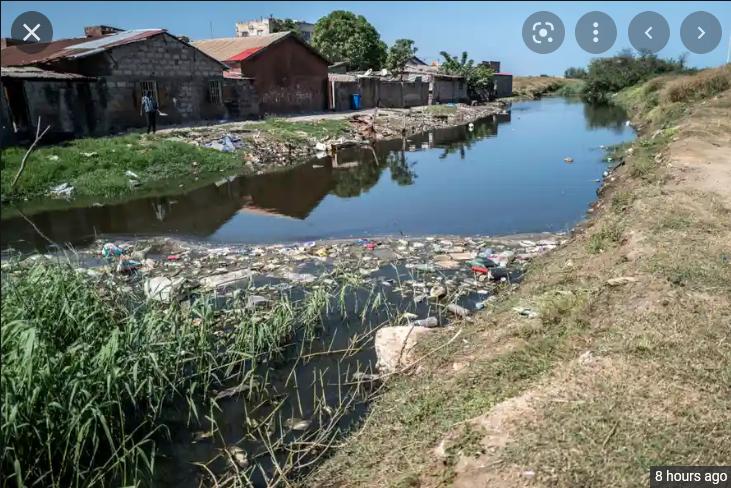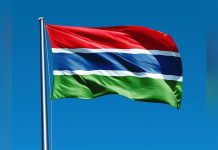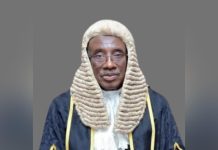Africa-Press – Gambia. Those living in Banjul’s slums face the effects of a climate crisis they did little to cause – and will need more help than the Cop26 deal promises Global development is supported by
 About this content Lizzy Davies in Banjul Mon 15 Nov 2021 07.00 GMT
Yedel Bah would move home if she could, but she can’t. With no income of her own, four children to feed and a husband who just about manages, her family lives from day to day, and from flood to flood, on the banks of a litter-strewn, stagnant canal.
Every rainy season, the neighbourhood of Tobacco Road in the Gambian capital, Banjul, braces for downpours of such intensity that the canal overflows, spilling its murky, pungent depths into the slum-like homes that run alongside it.
After one particularly bad flood this summer, the waters remained in Bah’s rooms for 11 days. “Everything was spoiled,” she says. “Food, everything, even our mattress.”
This would be bad enough if the canal were even moderately clean, but it isn’t: until recently, a local MP says, a pipe was dumping raw sewage into it. Crocodiles have been seen lurking nearby, and a couple of years ago one made its way out of the canal into a mosque just a few doors down from Bah’s compound.
Bah, 45, worries about her children growing up here and what will happen during the next flood – for it is a question of when, not if, this will happen. But she can do little to improve her situation. “I have no choice,” she says.Life in Tobacco Road, a poor neighbourhood in the low-lying coastal capital, has never been easy, but it is becoming more and more difficult. It is places like this – where physical vulnerability is exacerbated by abject poverty and failing infrastructure – that needed more from Cop26 than they appear to have got.
“We need help,” Bah says simply, when asked about her message to political leaders. But it is not clear where that help will come from.The Gambia is a small strip of low-lying land in west Africa along both banks of the river from which it takes its name. As one of the world’s poorest and least-developed countries, it is suffering the effects of a climate crisis it did very little to cause. On an island jutting out into the Atlantic, less than a metre above sea level, Banjul is particularly exposed.
But residents say human-made failures have made its future even more perilous. Ousman Sillah, the national assembly member for Banjul North, the constituency that includes Tobacco Road, fears that unless concerted action is taken soon, disaster looms.
“Well, we are going to lose Banjul at the end of the day. It’s going to be uninhabitable unless the country is prosperous [enough that] we can have a city on stilts.” He laughs wryly as if to acknowledge how far-fetched that sounds in a country where nearly half the population live in poverty. “We are not ready for that. If you look at Banjul now, people are so poor they cannot afford that.”
For More News And Analysis About Gambia Follow Africa-Press






